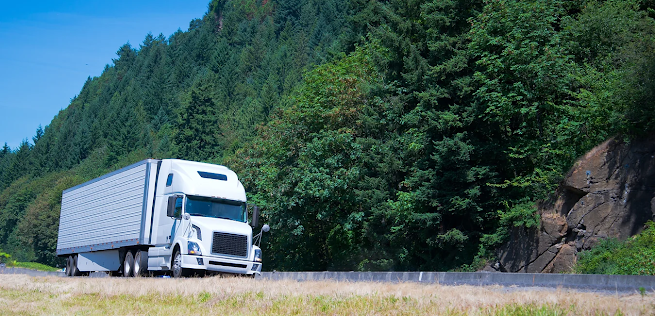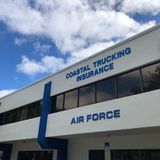Coastal Trucking Insurance Requirements in Georgia
Georgia's coastal regions provide a vital hub for trade and transportation, making it a prime location for trucking companies. However, operating in coastal areas comes with unique challenges and risks, necessitating specialized insurance coverage. In this blog post, we'll delve into the nuances of coastal trucking insurance in Georgia, helping trucking companies grasp the essential aspects and make informed decisions.
Coastal Trucking Insurance: A Primer
Coastal trucking insurance is a specialized form of commercial insurance for trucking companies operating in coastal areas. This type of insurance accounts for risks specific to coastal regions, such as adverse weather conditions, port-related operations, and proximity to bodies of water.
Key Coverage Aspects
1. Weather-Related Perils:
Coastal areas are susceptible to extreme weather events like hurricanes, storms, and flooding. Coastal trucking insurance typically covers damages and losses resulting from these weather-related perils.
2. Cargo Coverage:
Given the nature of cargo transportation in coastal regions, comprehensive cargo coverage is crucial. This includes protection against damage, theft, or loss of cargo during transit or while at a port.
3. Liability Coverage:
Liability coverage is fundamental, encompassing protection against accidents involving third parties, property damage, bodily injuries, or legal claims. It's vital for safeguarding the financial interests of the trucking company.
4. Equipment Insurance:
Insurance for the fleet and equipment is paramount. This includes coverage for trucks, trailers, and other essential machinery, ensuring they're protected in the event of accidents, theft, or vandalism.
Factors Influencing Coverage and Premiums
Several factors influence the cost and extent of coastal trucking insurance in Georgia:
1. Location and Routes:
The specific coastal areas a trucking company operates in, and the routes it frequents play a significant role in determining the insurance coverage needed and its associated costs.
2. Type of Cargo:
The type of cargo being transported also impacts insurance. Hazardous materials or high-value cargo may necessitate additional coverage or affect premiums.
3. Safety Measures:
Adhering to stringent safety protocols and investing in driver training programs can result in lower premiums. Insurers often incentivize safety-conscious practices.
4. Claims History:
The trucking company's claims history, including past accidents or filed claims, can influence the insurance cost and coverage options.
Importance of Coastal Trucking Insurance
For trucking companies operating in coastal Georgia, having the right insurance is not just a legal requirement but a prudent business decision. It ensures financial protection and operational continuity in the face of unforeseen events, enabling the company to recover and resume operations swiftly.
Choosing the Right Insurance Provider
When selecting an insurance provider for coastal trucking insurance, consider factors like experience in the industry, customer reviews, coverage options, and their understanding of the unique challenges posed by coastal operations.
In conclusion, coastal trucking insurance in Georgia is a specialized form of coverage designed to safeguard trucking companies against the specific risks prevalent in coastal areas. By understanding the nuances of this insurance, Coastal Trucking Company can make informed decisions that ensure the longevity and success of their operations.
For personalized advice and assistance with your need for the Best Coastal Trucking Insurance in Georgia, reach out to reputable insurance providers with expertise in this niche. Stay safe and secure on the coastal routes!

.jpg)

.jpg)
Comments
Post a Comment